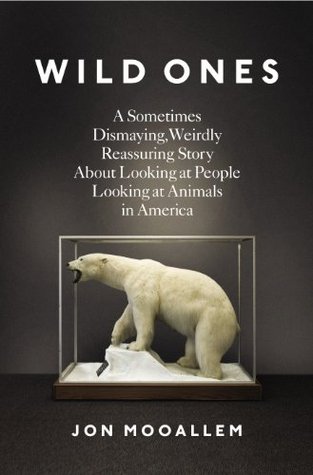More on this book
Kindle Notes & Highlights
by
Jon Mooallem
Read between
June 21 - June 25, 2013
The new message, a museum director told me, was “Never mind the polar bears. Concentrate on how bad it’s going to be for you.”
In the twenty-first century, how species survive, or go to die, may have more to do with Barnum than with Darwin.
A Hawaiian plant called the Alani spent fifteen years on the candidate list before it was finally bumped up to endangered status in 1994. Unfortunately, the plant appeared to have gone extinct two years earlier.
eradicating certain animals, and then, having beaten those creatures back, empathizing with them as underdogs and wanting to show them compassion. We exert our power, but are then unsettled by how powerful we are.
After all, we’re the ones who upset so many ecosystems in the first place—we override the natural course of evolution when we endanger species, too, not just when we try to save them.
“The tsunami of change that’s going on at that place, with the nonnative weeds—you want to know, is this just an exercise in futility? What is it going to take to put these pieces of a puzzle back together when the puzzle itself has already changed?”
All of us adopt the natural world we encounter in childhood as our psychological baseline—an expectation of how things should be—and gauge the changes we see against that norm.
So many of the ecosystems we see, study, and appreciate like architecture are, in fact, mostly ruins—a
Nature is not a photograph that will always look good if we keep our fingerprints off it. It’s a calculator, adding up numbers we don’t always realize we’re pressing and confronting us with the sum.
Mattoni wanted to see a full-scale effort to collect and describe all the earth’s plants and animals so that we’d at least have a record of what we destroyed.
But he felt compelled to engineer a certain kind of childhood for his son, just as I did for Isla—one that involved being outdoors, knowing about animals, heels dug into nature. “That’s our responsibility,” Brooke told me. “You’ve got to expose them to as much of the good as you can.”
“Humanity caused the problem to begin with, and so it’s very hard for humanity to solve the problem. Because it’s humanity!
“It’s a people project. The birds are an excuse for doing something good.”


